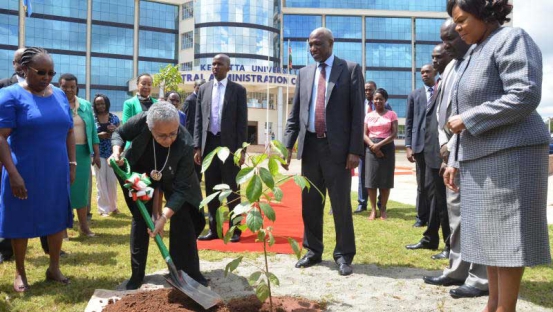×
The Standard e-Paper
Stay Informed, Even Offline

Women suffering from fistula to seek maternal health care.
Speaking at the International Conference on Reproductive Health at Kenyatta University on Tuesday, First Lady Margaret Kenyatta said as the world commemorated Fistula Day, the Government had a duty to partner with health stakeholders to eradicate the condition.